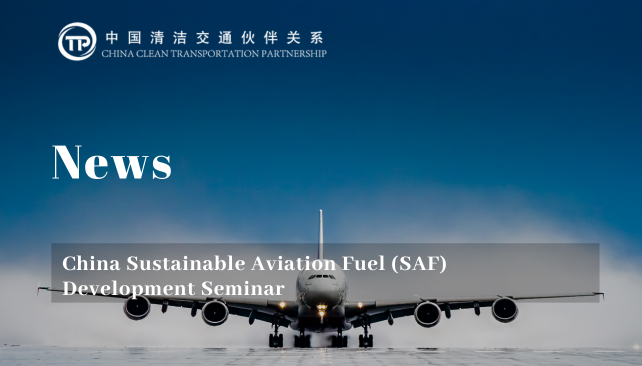
On April 22, on the occasion of the 56th World Earth Day, the "China Sustainable Aviation Fuel (SAF) Development Seminar" was successfully held at Zhongguan New Garden, Peking University. Hosted by the Institute for Energy and Transportation Innovation (iCET) and co-organized by the Energy Research Institute of Peking University and the China Clean Transportation Partnership (CCTP), the seminar brought together industry experts to explore SAF development pathways in China.
More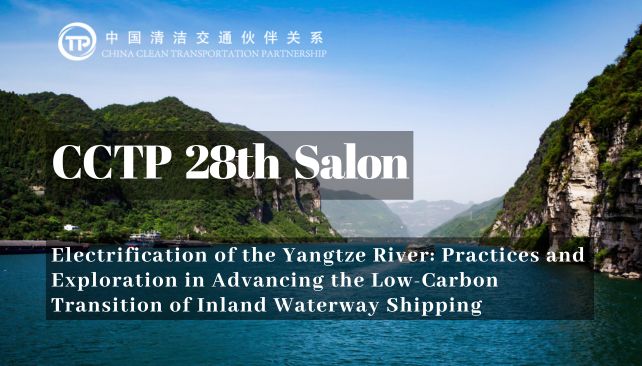
On the morning of August 15, 2024, the 28th themed salon of China Clean Transportation Partnership (CCTP) - Electrification of the Yangtze River: Practices and Exploration in Advancing the Low-Carbon Transition of Inland Waterway Shipping was successfully held in Wuhan, Hubei Province. Jointly organized by Wuhan Changjiang Ship Design Institute Co.,Ltd. (CSDI) and CCTP, the salon adopted a combination of online and offline format, bringing together nearly 50 policy researchers, industry experts and industry practitioners from across the country to discuss the green and low-carbon transition of inland shipping, share insights and make relevant suggestions.
More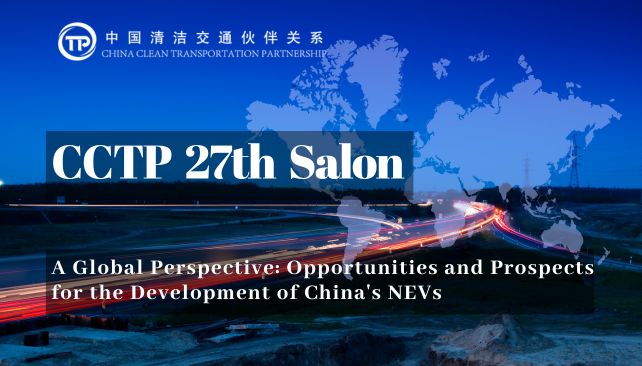
On the afternoon of August 9, 2024, the China Clean Transportation Partnership (CCTP) held the 27th session of the themed salon: "A Global Perspective: Opportunities and Prospects for the Development of China's NEVs". The salon adopted both online and offline, attracting nearly 50 experts, scholars and industry practitioners in the field to jointly provide insights and suggestions for the international development of China's new energy vehicle enterprises.
More
CCTP held the 26th themed salon on the afternoon of April 22, 2024: "Exploring Scenario-Based Strategies for the Adoption of Electric Heavy-Duty Trucks". The salon adopted a combination of online and offline methods, bringing together more than 30 experts, scholars and industry practitioners in the field to jointly explore feasible ways for the promotion and implementation of electrification of medium and heavy trucks.
More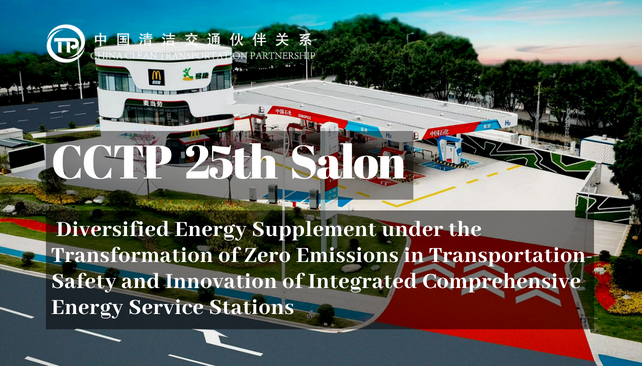
On the afternoon of November 13th, CCTP in collaboration with Energy Link, successfully hosted the 25th themed salon: " Diversified Energy Supplement under the Transformation of Zero Emissions in Transportation—Safety and Innovation of Integrated Comprehensive Energy Service Stations." More than 30 experts, scholars, and industry practitioners from over 20 institutions participated in the event through a combination of offline and online modes. The salon engaged in lively discussions on topics such as the positioning and development trends of different transportation energy sources, the role of integrated comprehensive energy service stations in the zero-emission transformation of road transportation, and key challenges and solutions for the development of charging infrastructure.
More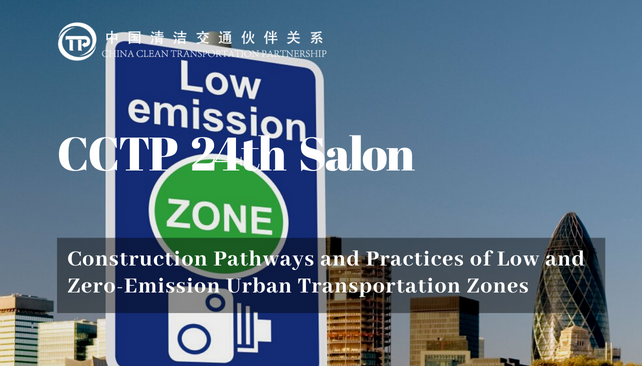
On the afternoon of September 14th, CCTP in collaboration with the Shenzhen Urban Transportation Planning Center (SUTPC) and Chengdu Automotive Environmental Protection Technology Co., Ltd., successfully hosted the 24th thematic salon. Nearly 40 experts, scholars, and industry practitioners from over 20 institutions participated in the event through a combination of offline and online interactions. The salon discussed challenges faced in constructing low-emission zones, the roles of stakeholders in building these zones, and the economic, social, and environmental benefits of constructing low and zero-emission zones.
More
On the afternoon of September 7, CCTP successfully hosted the 23rd thematic salon. Themed " Empowering Scientific Decision-Making for Enterprises, with a Focus on the Accounting Method for Cost Reduction and Efficiency Improvement in New Energy Heavy Trucks," the salon attracted over 20 experts, scholars, and industry professionals from nearly 20 organizations. The meeting engaged in lively discussions on topics such as the economic accounting methods for emissions reduction of new energy heavy-duty trucks, approaches to cost reduction and efficiency improvement of these vehicles, and innovative methods to increase truck utilization and reduce operational costs.
More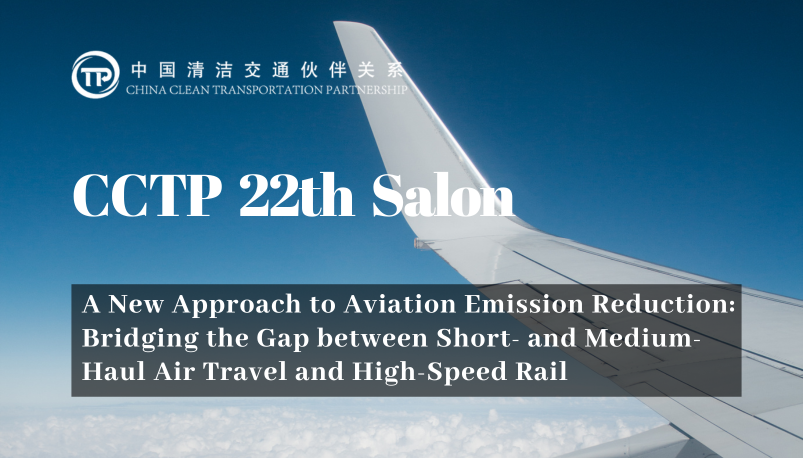
On the morning of July 25th, the 22nd installment of the CCTP Salon Seminar was conducted with resounding success. The seminar, titled "A New Approach to Aviation Emission Reduction: Bridging the Gap between Short- and Medium-Haul Air Travel and High-Speed Rail," attracted the participation of over 20 experts, scholars, media representatives, and industry professionals from 10 prominent institutions. This engaging event fostered discussions both online and offline, encompassing a comprehensive exploration of topics such as the dynamics of supply and demand within high-speed rail and civil aviation passenger transportation services. Additionally, the discourse delved into the potential, opportunities, and challenges associated with transitioning civil aviation passenger transport to high-speed rail, among other pertinent subjects.
More
On the afternoon of February 21, 2023, Agora Verkehrswende, the German International Cooperation Agency (GIZ), and the China Clean Transportation Partnership (CCTP) jointly hosted a salon seminar on reducing carbon emissions in the automotive industry supply chain. Nearly 50 experts, scholars, and industry practitioners from 17 institutions participated in the seminar and had lively discussions on topics such as how to promote decarbonization of enterprises and products in the Chinese and German automotive industries' supply chains, the development of carbon reduction in the two countries' electric vehicle industries' supply chains, key links in carbon reduction, and how Sino-German cooperation can ensure the safety and sustainability of the automotive industry supply chain.
More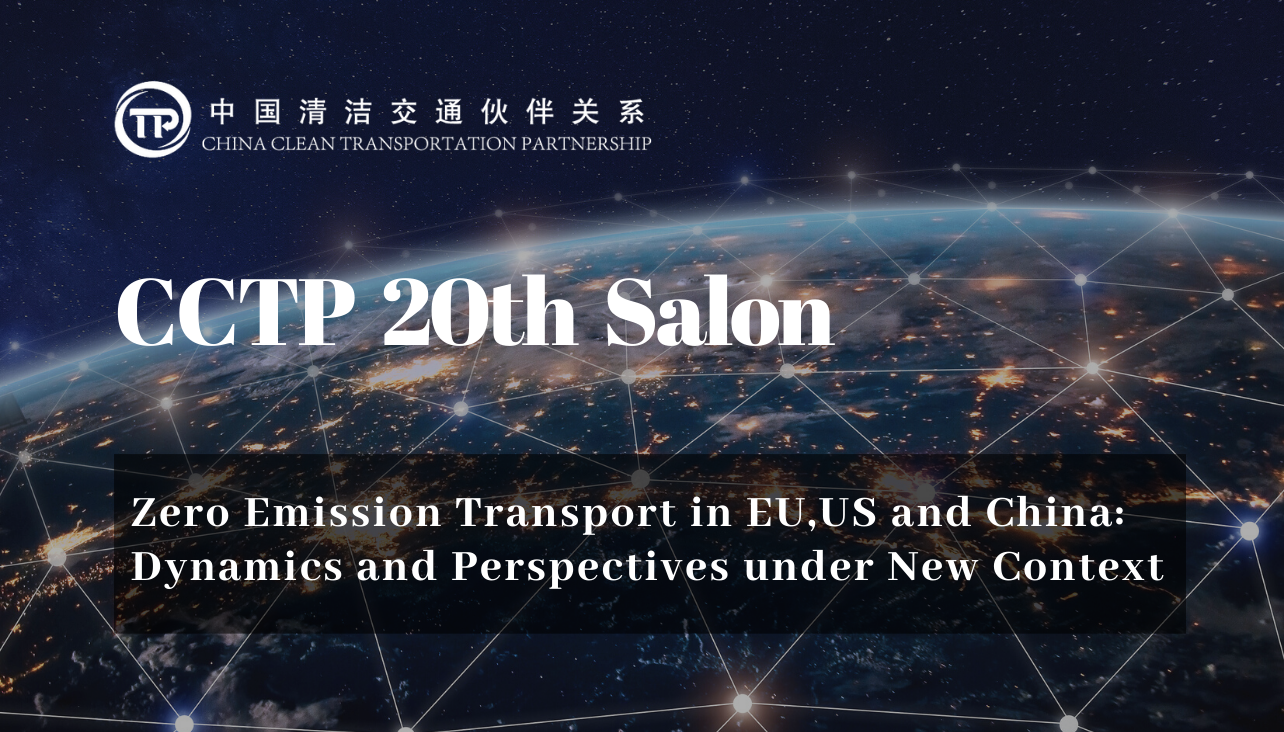
On October 17 and 19, 2022, CCTP successfully held the 20th workshop. Experts, scholars, and industry practitioners from home and abroad were invited to discuss on topics such as the policies related to carbon neutrality in transportation, the impacts of changes in the international situation on the process of achieving net-zero transportation and how to deepen international cooperations.
MoreCCTP is a non-governmental, non-profit, and voluntary platform, focusing on policy and technological innovations, summarizing and disseminating national and global practices for a net-zero transportation sector.